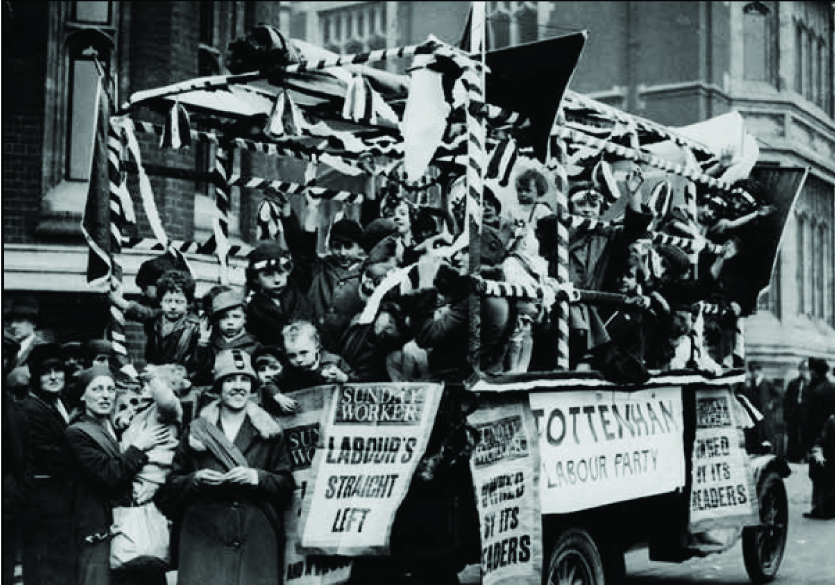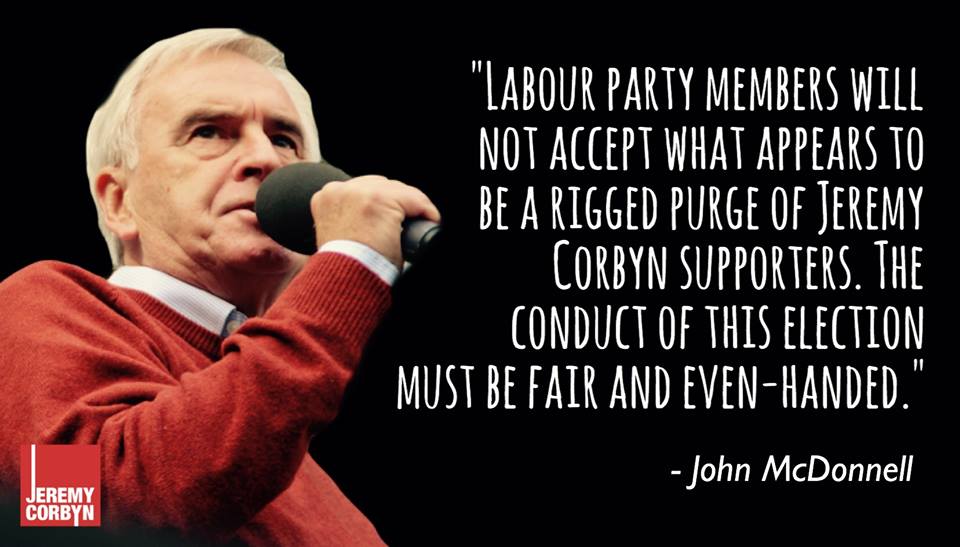Lawrence Parker investigates the political origins of Jeremy Corbyn’s director and deputy director of strategy and communications
When Jeremy Corbyn’s campaigns chief Simon Fletcher quit last month, it was widely interpreted as a victory for Seumas Milne. Fletcher was known to have heated exchanges with Corbyn’s director of strategy and communications on a range of issues, including Brexit. Now, Corbyn has signed up Steve Howell to be Milne’s deputy. Howell’s official job description is to help “oversee the leader’s media strategy and to implement the communications grid”. He is taking an indefinite leave of absence from his lobbying agency, Freshwater, to take up his role in the Labour leader’s office.1)Howell founded Freshwater in Cardiff in 1997 after working as a news reporter and producer for BBC Radio Wales. The 19-strong public affairs and PR agency now has offices in Cardiff and London. According to the APPC register, the firm’s most recent clients include the multinational building materials company Tarmac and the personal injury lawyers Thomsons.
There are unlikely to be heated exchanges between Milne and Howell not least because they are old friends and old Straight Leftist comrades. Andrew Murray, chief of staff for Unite and yet another former SL member, recently left the Morning Star’s Communist Party of Britain to join Labour and is also thought to be in Corbyn’s inner circle.
Origins
Straight Left’s origins lie in the left, pro-Soviet oppositions that emerged in the Communist Party of Great Britain in the 1960s. In this period, a definite ‘party within a party’ existed, with figures such as Sid French, district secretary of Surrey CPGB, becoming key leaders. The general critique that came from this faction was a concern over the CPGB leadership distancing itself from the Soviet Union (such as around the invasion of Czechoslovakia in 1968) and other ‘socialist’ countries; a preference for a more ‘workerist’ identity (for example, the faction would have been happy with the CPGB’s paper remaining as the Daily Worker in 1966) and a concentration on workplaces/trade unions; and a sense that the party was squandering its resources in futile election contests and alienating the left of the Labour Party, with whom it was meant to be developing a close relationship on the British road to socialism (BRS), the CPGB programme.
However, a significant part of the faction felt that the BRS was ‘reformist’ and ‘revisionist’ in all its guises from 1951, counterposing a revolutionary path to the parliamentary road to socialism envisaged in the CPGB’s existing programme. This stance was clouded in ambiguity in many sections of the CPGB’s left, with the default position usually being expressed in a preference for the 1951 version of the BRS that had been overseen by Stalin, as opposed to later versions modified by a ‘revisionist’ CPGB leadership. This opposition suffered a major split in the run-up to the CPGB’s 1977 congress, with Sid French taking away 700 or so supporters to form the New Communist Party (after French realised that the CPGB’s leadership was intent on a reorganisation of his Surrey district, which would have deprived him of his organisational bridgehead).
The rump left opposition in the CPGB coalesced around Fergus Nicholson (other key figures were John Foster, Brian Filling, Nick Wright, Susan Michie, Pat Turnbull and Andrew Murray), who had been the CPGB’s student organiser until 1974. The Straight Left newspaper was launched in 1979, it was edited by Mike Toumazou and had Seumas Milne as business manager. Later a theoretical magazine, Communist, appeared. Membership figures are impossible to guess. However, judging from Communist, the faction did have a wide national infrastructure beyond London through the 1980s and was certainly on a par with, if not in some places more deeper rooted than, the other oppositional stream around the Morning Star (see below).
Factional infighting
The Straight Left group provoked a lot of enmity from its factional rivals in the CPGB. Thus, Mike Hicks, who was involved in the Communist Campaign Group (CCG), set up after the rebellion of Morning Star supporters against the CPGB leadership in the mid-1980s, and later the first general secretary of the 1988 Communist Party of Britain split (both criticised and opposed by the Straight Leftist faction), said in the late 1990s: “Straight Left was neither straight nor left.”2)F Beckett Enemy within: the rise and fall of the British Communist Party London 1998, p234. The accession of a group of ex-Straight Leftists (including Andrew Murray and Nick Wright, who had split from Straight Left to form Communist Liaison in the early 1990s) into the ranks of the Communist Party of Britain contributed to a bitter faction fight in the organisation, in which Hicks was eventually deposed as general secretary, and a strike by Morning Star staff.
Similarly, a CCG document complained: “The individuals grouped around Straight Left have their own newspaper, their own organisation and their own objectives.”3)Communist Campaign Group The crisis in the Communist Party and the way forward (no date but circa 1985). I have been told anecdotally by CPGB activists of the time that Straight Left was thought to have three circles: an inner ‘Leninist’ core; a broader circle of sympathisers in the CPGB; and the ‘softer’ Labourite and trade unionists grouped around the Straight Left newspaper (non-CPGB trade unionists such as Alan Sapper and Labour MPs such as Joan Maynard were on its advisory board). Certainly, the majority of the content of the newspaper was hewn from the same, dry ‘labour movement’ template used by the Morning Star, with little indication that it was the work of communists, apart from its commentary on the Soviet Union and other international matters. (The Communist journal, obviously aimed at CPGB sympathisers, was much more orthodox and harder Marxist-Leninist in tone, with a lot of very interesting commentary on inner-party CPGB matters.)
So Straight Left was a faction and did indulge in political camouflage, but in this it was merely of its time. For example, the CCG’s disavowal of Straight Left’s factionalism was merely an attempt to throw people off the scent from the CCG’s own factionalism (the CCG unconvincingly complained it was not a faction at all; just a group that wanted to follow the CPGB’s rules – which fooled nobody). The CPGB was riddled with factions in the 1980s, not least those grouped around Marxism Today and the party machine.
Similarly, on Straight Left’s broad left camouflage in its newspaper and other forums, this was the modus operandi of nearly the whole far left, from the Morning Star to various Trotskyist groups: ie, communists clothing their politics in everything from trade unionism to feminism and concealing their true aims in the pursuit of mass influence. Again, in hindsight, Straight Left does not strike one as very exceptional in this regard. In retrospect, the enmity aimed at it on these counts stands revealed as the product of mere factional rivalry.
However, another area of criticism aimed at Straight Left may have more mileage in terms of a lasting judgement. The group was deemed by its CPGB factional rivals (both in the CCG and the small group around The Leninist, forerunner of the Weekly Worker) to have a ‘heads down’ approach to CPGB work. In the words of the CCG, such an approach
counsels caution and compliance with the authority of the [CPGB’s] executive committee. It says that if there is disagreement and dissatisfaction with the Eurocommunists [the faction then dominating the party’s leadership], then opposition must be expressed and conducted via the normal party channels. That is to say, we must try at successive congresses to defeat and remove the Eurocommunists.4)Communist Campaign Group The crisis in the Communist Party and the way forward (no date but circa 1985).
This led to such notorious moves as Straight Leftists walking out with the CPGB leader, Gordon McLennan, when he closed down a London district congress in November 1984 that threatened to become a point of opposition to the party leadership. Mike Hicks, in the chair of this meeting, later contemptuously observed that Straight Left “ended up selling Marxism Today [the CPGB theoretical journal much despised by the party’s left in the 1980s for its Eurocommunist proclivities] instead of the Morning Star because the executive told them to”.5)F Beckett Enemy within: the rise and fall of the British Communist Party London 1998, p234
However, what this Straight Left strategy of avoiding open conflict eventually led to, in the context of a CPGB that was being set on a liquidationist course, was it being left somewhat high and dry. SL had built a considerable base in London by the end of the 1980s “by showing a willingness to take on responsibilities at a time when few candidates were to be found”.6)W Thompson The good old cause: British communism 1920-1991 London 1992, p205. This was to be a very hollow victory indeed, given that the CPGB was soon to pass into oblivion and the succession of congresses to win was coming to an end.
Labour Party
In terms of the Labour Party, Straight Left took the BRS injunction of developing an alliance with Labour to effect radical changes to its logical conclusion by arguing that the CPGB should affiliate to the Labour Party and – more controversially for both the left and right of the CPGB – that the party should end its independent electoral work. Thus a typical article in Communist argued:
… it is difficult to see there being much movement against the exclusion of communist trades unionists from the Labour Party until our electoral strategy is based on non-sectarian principles and imbued with a thoroughly consistent and positive attitude to the Labour Party.7)‘40th congress of the Communist Party’ Communist September 1987
Thus Straight Left picked up clearly on the attitude of the pro-Soviet CPGB opposition of the 1960s, which consistently drew attention to the political impact of declining electoral votes on the avowed Labour-communist strategy of the party. However, this opened up Straight Left to jibes of ‘liquidationism’ from both left and right in the CPGB8)For the right wing of the CPGB, see Dave Cook in the pre-congress discussion of 1981(Comment October 17 1981); and, for the left, see Alan Stevens in the same context (ibid). and, in retrospect, isolated the group further.
Soviet Union and ‘socialist’ countries
The Straight Left group, again showing its origins in the CPGB’s pro-Soviet left of the 1960s, took an extremely uncritical view of the Soviet Union and other ‘socialist’ countries, and regarded the actions of the CPGB as a ‘national’ sin against the ‘internationalist’ probity of the Soviet Union’s camp. Straight Left publications were filled with reprints from Soviet agencies such as Novosti and other agencies from the eastern bloc.
Thus, an article in Communist argued:
Communists in the capitalist world are not, in general, in a position to make the judgements that the CPSU is obliged to. Was it right or wrong to intervene in Afghanistan in 1979 to block the spread of counterrevolution? Is it right or wrong to withdraw the Soviet army from there today? The CPGB does not have to answer those questions. Our views are unimportant, and we do not have to live with the sharp consequences of the answers. The CPSU has to make those judgements, and it has the right to expect support and understanding in making them.9)H Sanderson, ‘Socialism today’ Communist September 1988
Neither did this stance seemingly allow criticism of even the most crisis-stricken and sickly military dictatorships of countries such as Poland in the early 1980s. Straight Leftist Charlie Woods, complaining bitterly of CPGB criticisms of the Polish regime in 1983, said:
After all, how would our [CPGB] leadership take it if the over two-million-strong Polish United Workers Party took time off from trying to solve the problems of socialism to remonstrate with our 16,000-member party’s failure to achieve it at all?10)C Woods The crisis in our Communist Party: cause, effect and cure 1983. Woods was a miner and party veteran from county Durham, who was expelled for writing this pamphlet – although he was very much viewed as a ‘fall guy’, with Fergus Nicholson or Brian Topping thought of as the more likely authors
The implication of this little homily being, of course, that those British communists really should not venture to criticise their Polish brethren at all.
Straight Left and gays
The group does not appear to have produced any significant material or statement on what would now be called LGBT questions (and an appeal from myself to its members to produce such a statement to clear this issue up, when this article originally appeared online, yielded nothing).11)This article originally appeared on the Hatful of History blog in October 2015. We are reproducing it here – in slightly amended form Members of the group have claimed that calling their newspaper Straight Left was a boxing metaphor (and some of its members certainly knew a thing or two about physical tussles with gay protestors); while others have suggested that it was recycling an old Sunday Worker slogan from the mid-1920s, when the CPGB was involved with the National Left Wing Movement: ‘Labour’s Straight Left’.
If it was the latter, it was a significant abuse of the slogan. The CPGB had this slogan to differentiate itself from traditional Labour lefts such as George Lansbury and the like: ie, those who were not ‘straight’, who would potentially disown communist allies and cosy up to the Labour right. It was not a slogan that covered the kind of homogenous ‘broad left’ that the likes of Straight Left advocated.
However, slogans can change their meaning with time. To call a newspaper Straight Left when your main factional opponents in the CPGB, the Eurocommunists, are keen on promoting gay rights, only invites some uncomfortable questions about your modus operandi on such issues. It is quite inconceivable that Fergus Nicholson and company were not aware that the name would be interpreted in this negative sense, particularly when it was the production of staunch advocates of the Soviet Union – a state with a problematic relation to homosexuality, to put it mildly.
To call all Straight Left members homophobic would be over-egging the pudding; to state that this group was one that had pronounced problems with homosexuality would not be stretching the truth l
References
| ↑1 | Howell founded Freshwater in Cardiff in 1997 after working as a news reporter and producer for BBC Radio Wales. The 19-strong public affairs and PR agency now has offices in Cardiff and London. According to the APPC register, the firm’s most recent clients include the multinational building materials company Tarmac and the personal injury lawyers Thomsons. |
|---|---|
| ↑2 | F Beckett Enemy within: the rise and fall of the British Communist Party London 1998, p234. The accession of a group of ex-Straight Leftists (including Andrew Murray and Nick Wright, who had split from Straight Left to form Communist Liaison in the early 1990s) into the ranks of the Communist Party of Britain contributed to a bitter faction fight in the organisation, in which Hicks was eventually deposed as general secretary, and a strike by Morning Star staff. |
| ↑3 | Communist Campaign Group The crisis in the Communist Party and the way forward (no date but circa 1985). |
| ↑4 | Communist Campaign Group The crisis in the Communist Party and the way forward (no date but circa 1985). |
| ↑5 | F Beckett Enemy within: the rise and fall of the British Communist Party London 1998, p234 |
| ↑6 | W Thompson The good old cause: British communism 1920-1991 London 1992, p205. |
| ↑7 | ‘40th congress of the Communist Party’ Communist September 1987 |
| ↑8 | For the right wing of the CPGB, see Dave Cook in the pre-congress discussion of 1981(Comment October 17 1981); and, for the left, see Alan Stevens in the same context (ibid). |
| ↑9 | H Sanderson, ‘Socialism today’ Communist September 1988 |
| ↑10 | C Woods The crisis in our Communist Party: cause, effect and cure 1983. Woods was a miner and party veteran from county Durham, who was expelled for writing this pamphlet – although he was very much viewed as a ‘fall guy’, with Fergus Nicholson or Brian Topping thought of as the more likely authors |
| ↑11 | This article originally appeared on the Hatful of History blog in October 2015. We are reproducing it here – in slightly amended form |

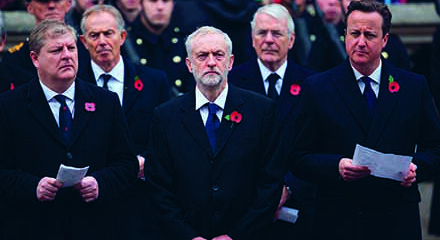
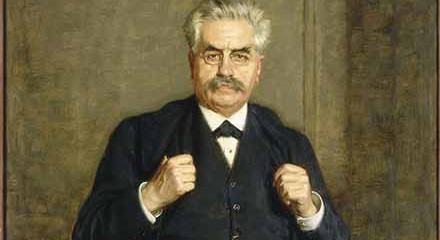
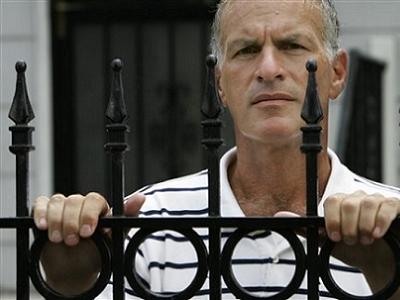
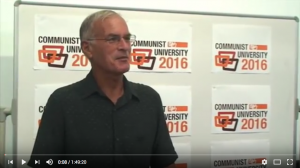
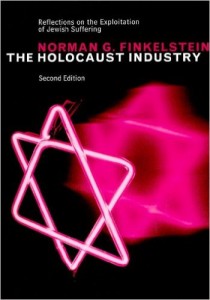 On the surface, Finkelstein has impeccable credentials to write on the horror of that broke over European Jewry in WWII. Both his mother and father were survivors of the Warsaw ghetto and the Nazi concentration camps. Apart from his parents, every family member was exterminated by the Nazis. In the words of Finkelstein, “My earliest memory, so to speak, of the Nazi holocaust is my mother glued in front of the television watching the trial of Adolf Eichmann (1961) when I came home from school” (p5).
On the surface, Finkelstein has impeccable credentials to write on the horror of that broke over European Jewry in WWII. Both his mother and father were survivors of the Warsaw ghetto and the Nazi concentration camps. Apart from his parents, every family member was exterminated by the Nazis. In the words of Finkelstein, “My earliest memory, so to speak, of the Nazi holocaust is my mother glued in front of the television watching the trial of Adolf Eichmann (1961) when I came home from school” (p5).